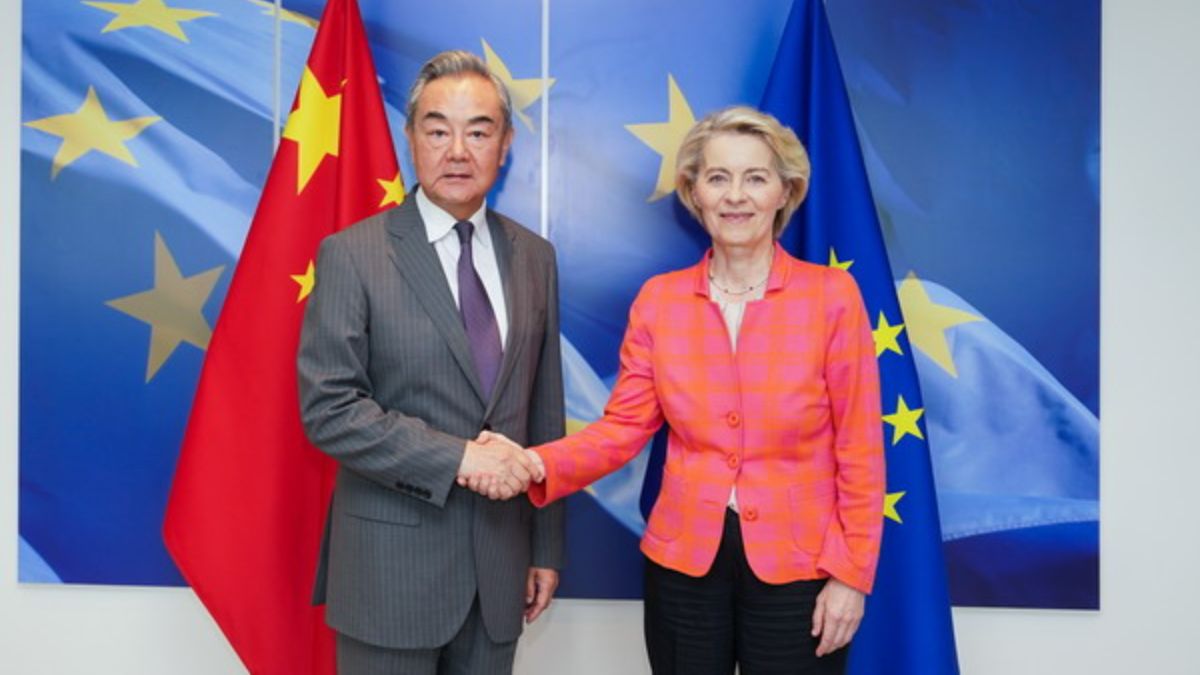Chinese Foreign Minister Wang Yi was in Europe this week to lay the groundwork for the upcoming EU-China Summit, but the harsh realities that he saw could not just make the summit meaningless but see it condensed to a one-day affair.
Even as China has pitched itself as a counterweight to the United States in terms of trade and international dealings, the reality is not lost on anyone in Europe that China has a massive trade surplus with the European Union (EU) and China is Russia’s ally in the war on Ukraine and aggression against Europe.
The Russian invasion of Ukraine and the shadow war on the continent has plunged Europe in the worst security crisis since the World War II. Russia is able to sustain its war and the broader economy because of Chinese economic assistance. China is not just buying Russian energy exports but is also providing Russia everything from weapons, dual-use goods, machinery, and weapons supplies to consumer goods.
If that was not enough of a proof that China was on the other side of the Europe-Russia conflict, Wang told EU foreign minister Kaja Kallas last week that China did not want to see Russia lose in the war with Ukraine, according to South China Morning Post.
Wang meets European leaders but tensions remain
In his tour of Europe, Wang met EU chief Ursula von der Leyen, Kallas, and ministers in France and Germany, and even as he pitched China as a credible partner, little was achieved to ease longstanding tensions between the two sides.
Wang stressed before his European counterparts that China and Europe do not have any fundamental conflicts of interest, but instead share extensive common economic and political interests, according to Business Times.
French newspaper Le Monde reported that Wang made “no progress on a host of disputes”. The newspaper dubbed the warming of EU-China relations as “impossible” as the two sides spar over trade imbalance, Ukraine war, cybersecurity, and the West Asia conflict.
Impact Shorts
More ShortsThe situation is such that the two-day EU-China Summit starting July 24 could be reduced to one day.
Last year, the EU slapped tariffs of up to 35 per cent on Chinese electric vehicles (EVs) and China retaliated with inquiries into Europe’s pork, dairy, and brandy sectors. The EU is also looking forward to securing an arrangement for the supply of rare earths.
Despite such a conflict, China would try to use its rare earths’ monopoly as a trump card just like it used it in the trade conflict with the United States. China controls around 70 per cent of rare earths’ reserves and around 90 per cent of rare earths’ production. Rare earths are used in nearly everything required in modern life, ranging from household electronics to cars and missiles and fighter planes.
Moreover, there is no one voice in the EU about China. While some countries are more business-minded, like France, others are more hawkish on


)

)
)
)
)
)
)
)
)



